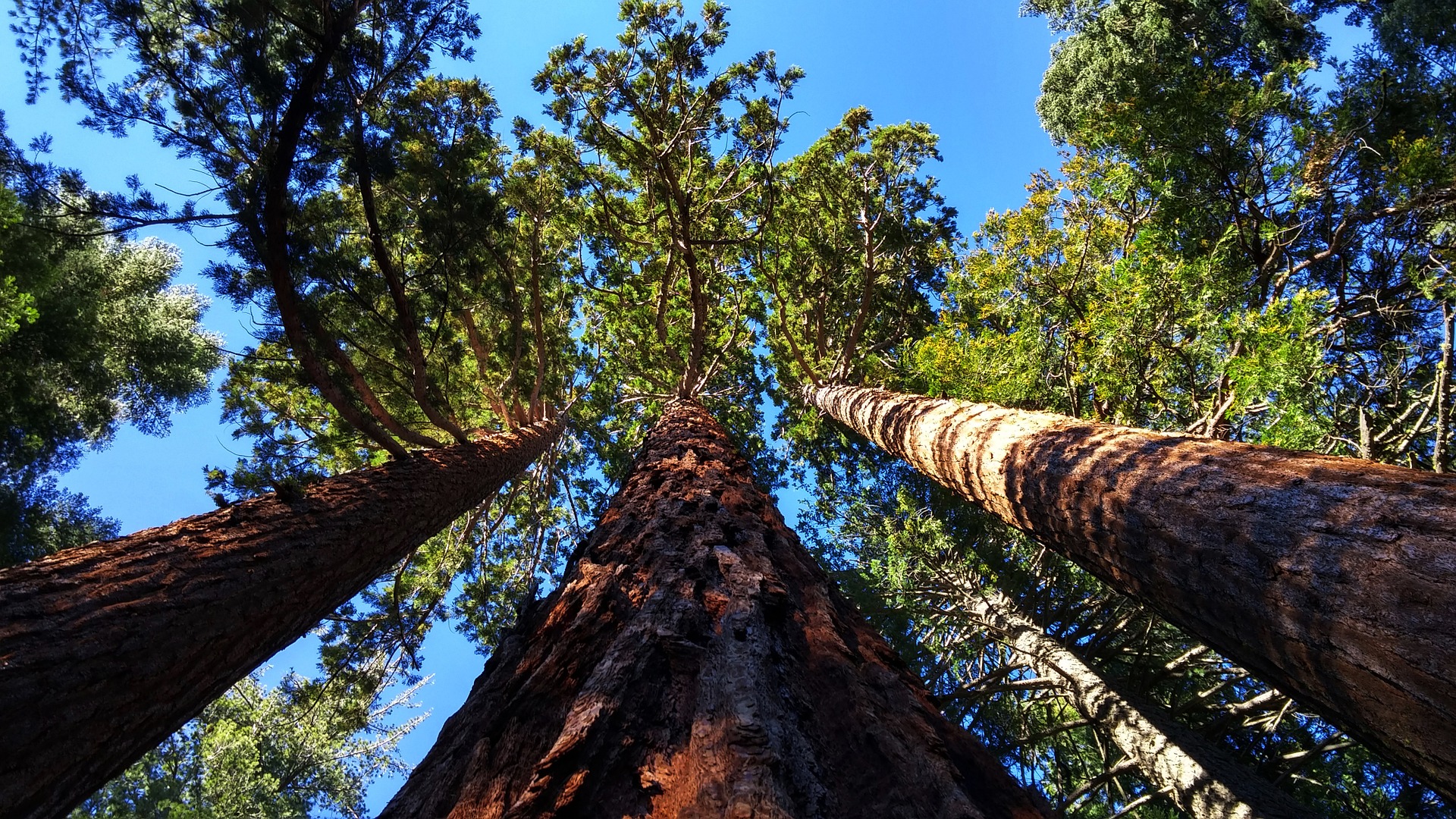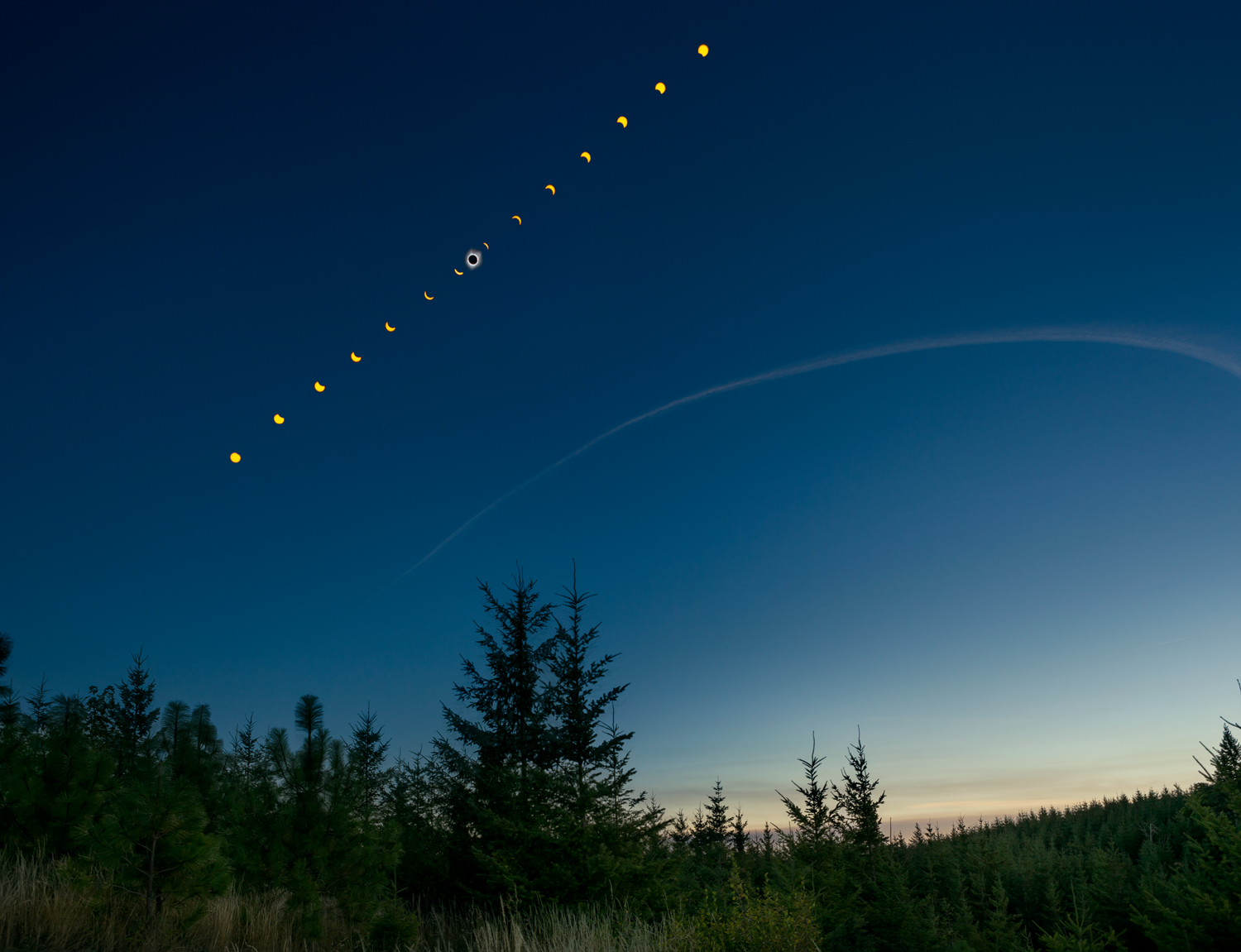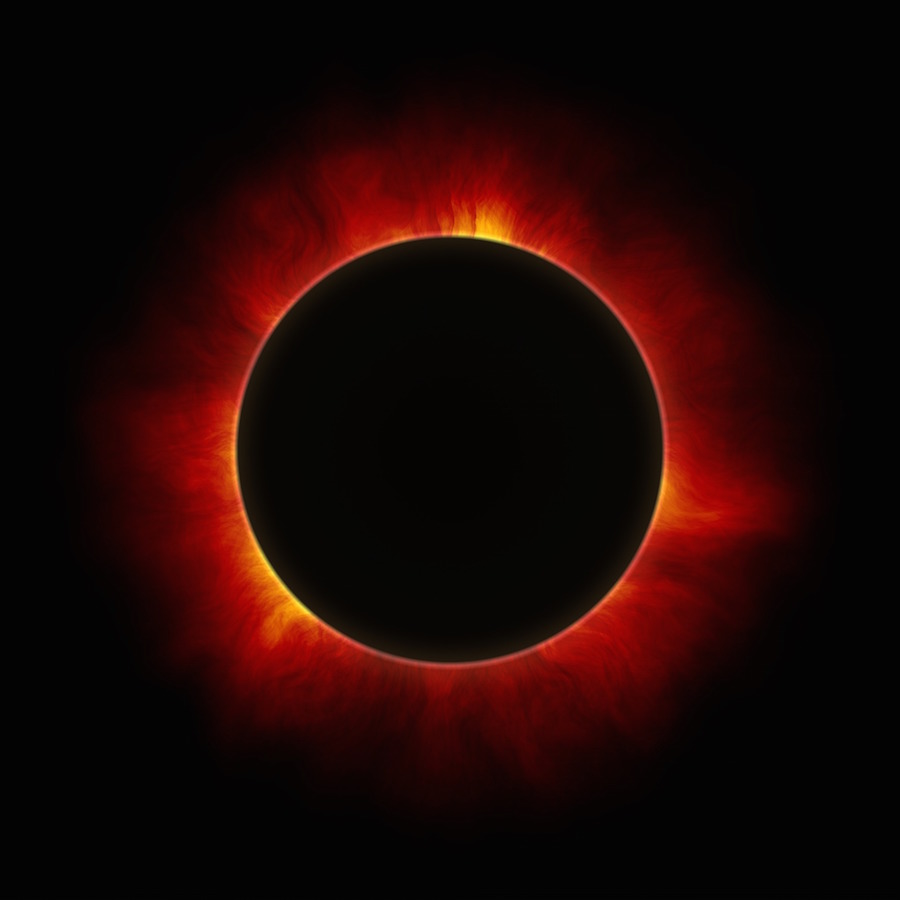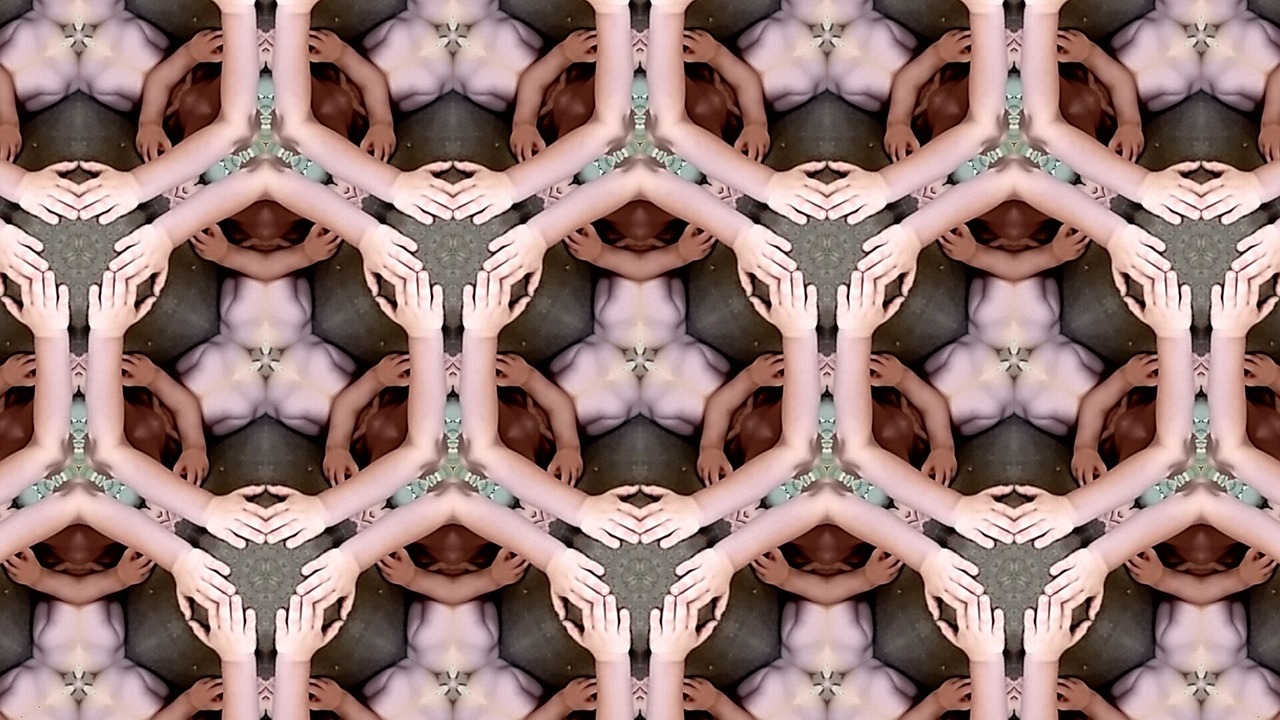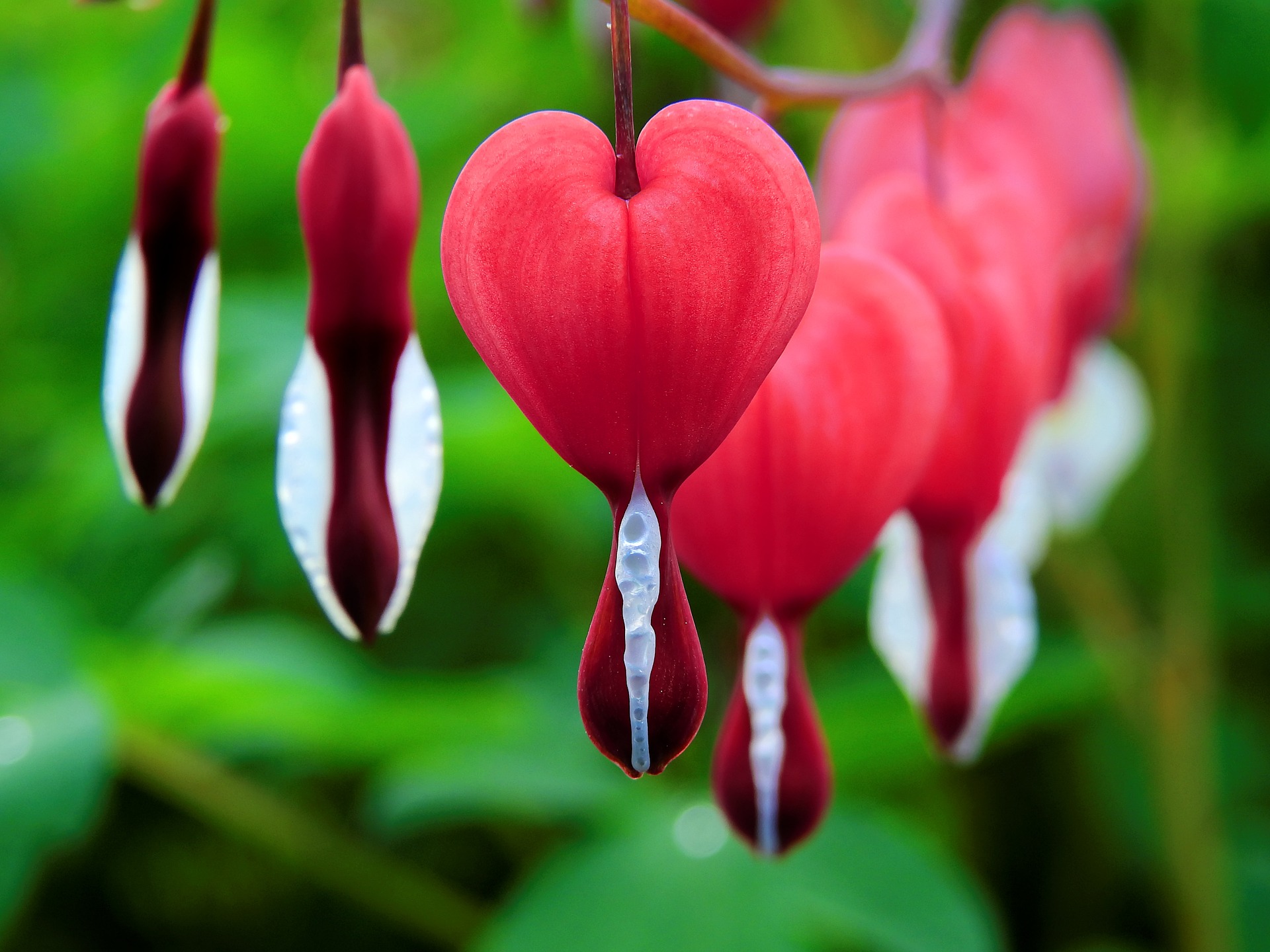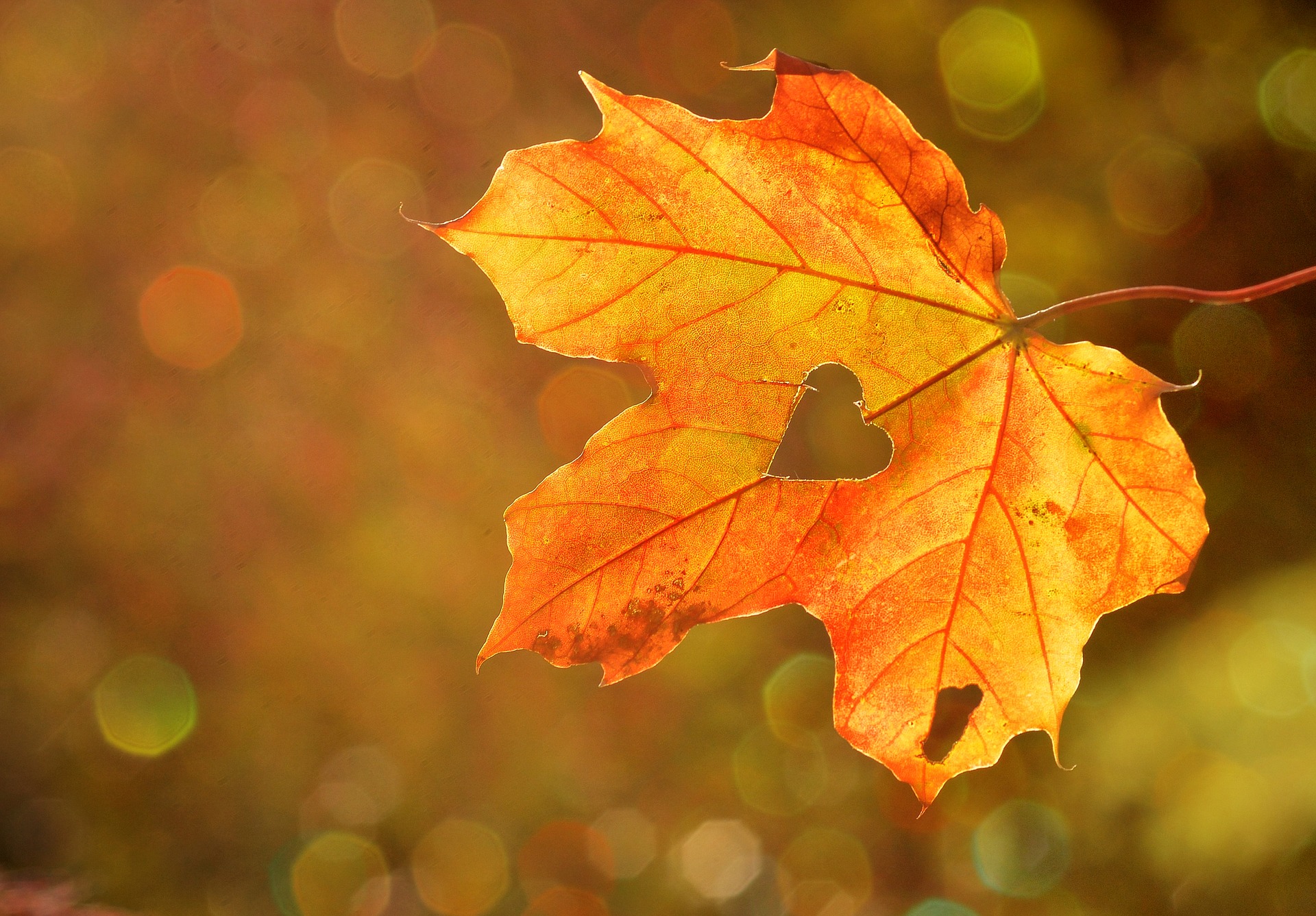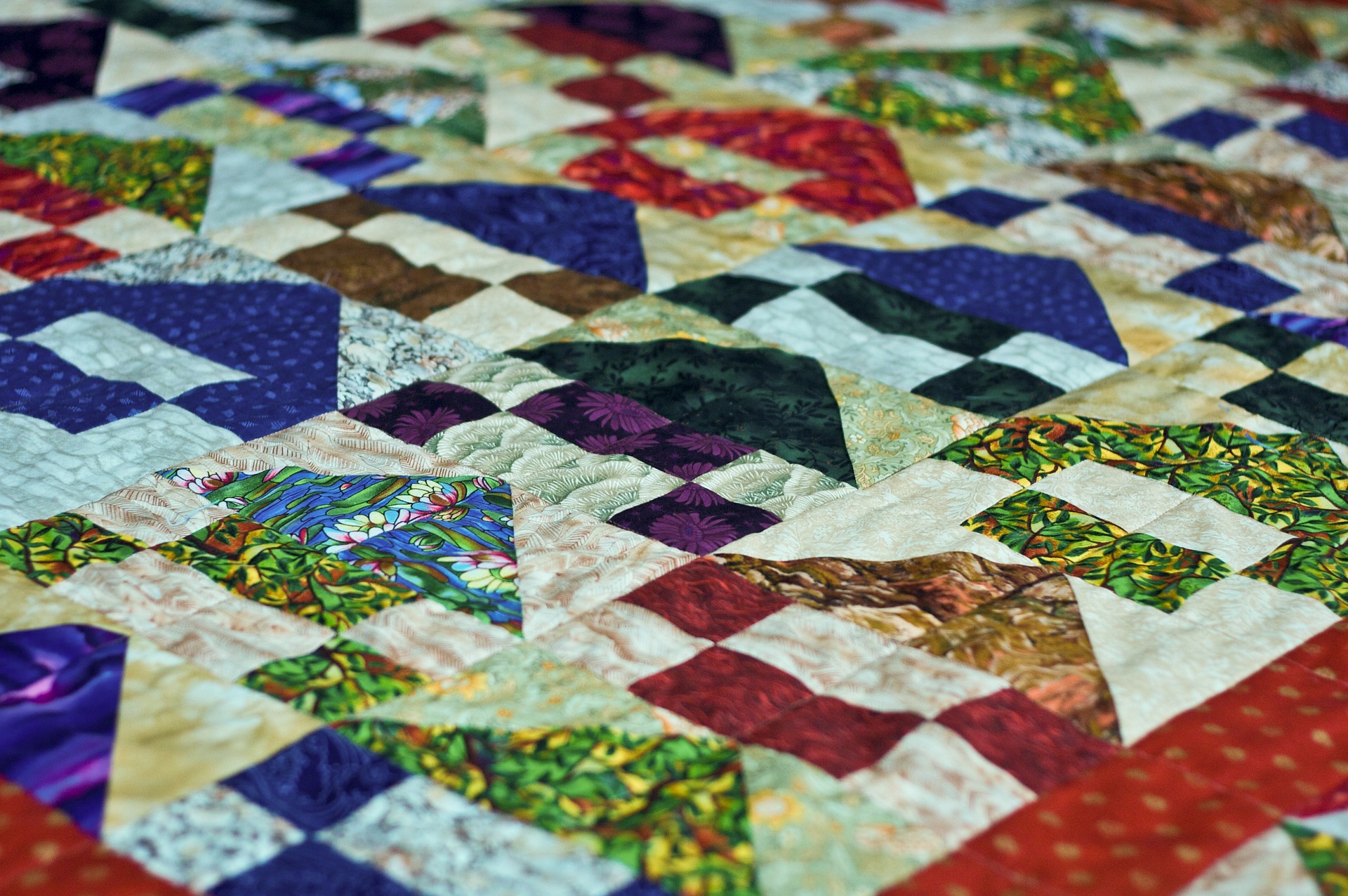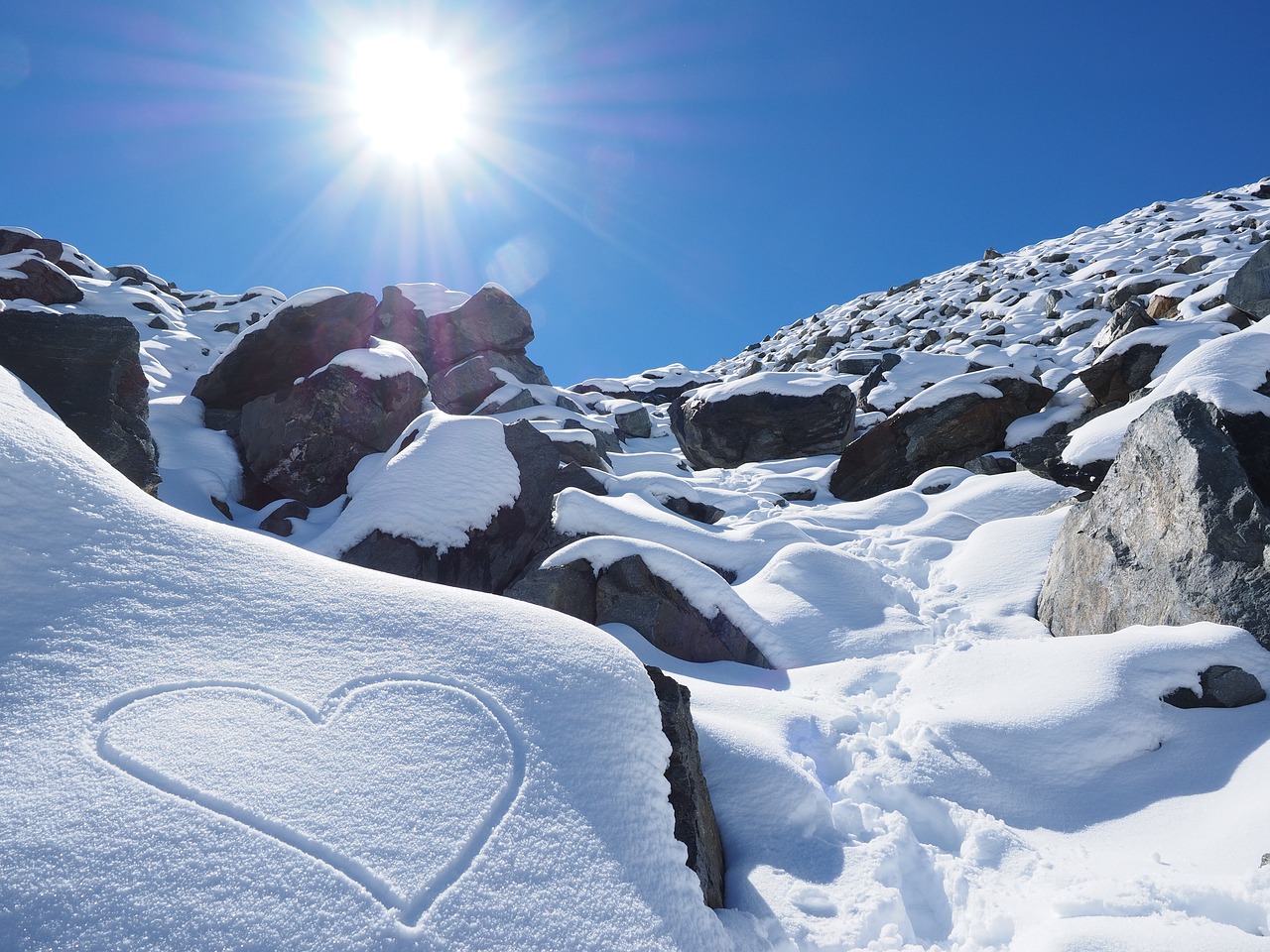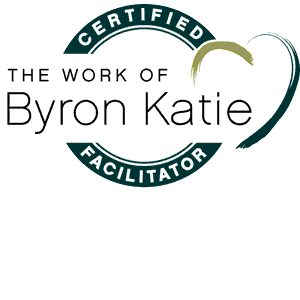Subversive Power of the Smile
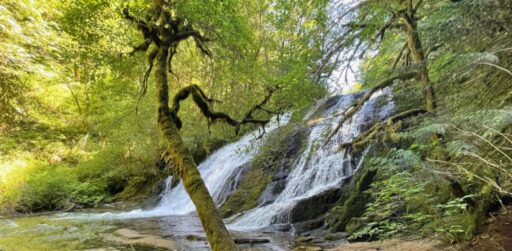
Happy Summer!
Gathering in community is challenging right now, for oh so many reasons. We’re already reeling from culture wars fed by deeply-held beliefs and trumped-up divisions and differences. Then there’s the confusion and chaos of rapid change. To make it worse, recovering from the isolation or trauma of the pandemic sometimes makes it awkward to simply be around other people. At long last our mouths are mostly disrobed. But I notice even this can be awkward, even for me, a naturally friendly person in a small, relatively safe town. For those who are just beginning to emerge from grief, anger, or fear from the troubles of the last couple of years, it can feel frighteningly vulnerable.
As human beings, it is our nature to thrive when we gather with others. So how do we go about life now, in our first “normal” summer in three years? Some of us start with church or go to farmer’s markets. Others brave the unpredictability of airline travel flights to reunite with family and friends. Or we find ways to naturally embrace real live community, in public spaces with children playing and babies toddling, perhaps accompanied by actual live music.
Lately I’ve been thinking often of a long-ago trip to Thailand, “Land of Smiles.” Even though the airline lost our bags, even through jet lag in a country radically different than my own, I experienced a curious feeling of well-being after a couple of days. I had already noticed that all the locals smiled as we passed. All of them. It was infectious and also faintly familiar, like going to the Oregon Country Fair or another festive gathering. But it took me a while to figure out that so much smiling had some powerful juju.
What I now know is that in Thailand there are 13 or more distinct smiles. The most common, reserved for strangers, is a smile to say hello, a polite courtesy. But even this smile, which I might usually find insincere, had worked on me. Since that trip I’ve discovered research on the increase in dopamine and endorphins and all manner of good chemicals humans experience when smiling. And yes, studies show it’s infectious to give and receive smiles.
I recently thought about the Thai tradition of smiling when I read these words by Richard Rohrer: “We don’t think ourselves into a new way of being. We live ourselves into a new way of thinking.” I suddenly knew just how to go about recovering from my awkwardness. I could live myself into a new way of thinking by the simple, conscious practice of smiling at folks whenever or wherever I could, regardless of what team they seemed to be playing on.
My radically subversive act began. Almost immediately what might have seemed false before felt like my true nature. I was living myself into a new way of thinking by simply smiling.
It’s been a remarkable experiment. Infectious. Fun. And real.
Join me? 😄
True Nature
Yesterday down the oak outside my window
A masked raccoon slowly crept, face first,
Striped tail straight up, prehensile claws holding fast.
Tiny nuthatches do this too
And somehow the earth doesn’t rise up
To claim their bodies, break their necks,
Or punish them for their arrogance.
Must be their true nature, I think.
Meanwhile, this body of mine,
held upright by bumpy ankles of many breaks,
Plops and slides down the slippery clay riverbank
butt first rather than risking a crooked footfall.
Sometimes, I think, true nature
also requires getting low on the earth,
having a seat, and then trusting gravity with the rest.
—SgB 6/2022
Mother, Simon, and Me
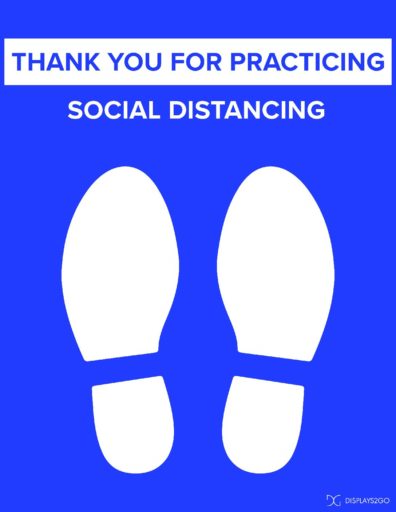
|
Nearly every recess in second grade, I raced to the playground to play one of my favorite games, either Mother May I or Simon Says. I didn’t care which. I don’t remember loving the power of telling the other kids how many baby or giant steps they could take. I just liked the way the rules were so easy, as long as you paid attention. If you weren’t listening or you didn’t mind Simon or moved without Mother’s permission, you were O-U-T.
So very simple and clear.
Ever since 2020 I’ve been longing for that old certainty. At first I studied daily updates and followed the leads, somewhat obsessively focused on decoding pandemic rules. Mostly I obeyed them, which wasn’t too hard since I’m of the certain age that makes caution advisable. But lately Simon has been MIA and I haven’t been able to get a clear answer from Mother. So, like everyone else, I’ve been following my best educated guess about re-entering the world of people.
At least that’s my excuse for my questionable decision to fly to Las Vegas last month for an extended family errand. Somehow the first night, looking for a restaurant, we found ourselves smack dab in the middle of several crowd events, mostly outdoors, but still. I was not prepared for the overstimulation that is Las Vegas, a place I hadn’t visited in years. And having been (mostly) sheltered, it was a lot.
A part of me was excited. At the same time another part (my whole nervous system?) began to scream for shelter. After a couple of days of entertainment laced with terror, my husband and I drove a few hours to pick up an RV. We drove it nearly a thousand miles back home to Oregon. This involved learning how to manage all the systems along the way and included a short Siri-directed diversion through San Francisco’s winding streets. Did I mention we were in an unfamiliar vehicle? In an RV? I’m still unpacking from the adventure of the trip.
In the end I didn’t get Covid, something I’ve resigned myself to experiencing as it becomes endemic. As it turns out, several of my friends, both traveling and stationary, did contract the virus. What to do? I’m hearing from lots of other folks about how awkward it is to make plans to reconnect, even though we know itwill probably be worth it in the end. Yesterday, a friend pointed out a people-friendly website: https://covidactnow.org. Having this resource has opened the door to more clarity in summer planning, began with a BIG stretch: indoor singing (with mask). ALMOST like the good old days. But I’ve mostly returned to my old cautious ways.
I don’t want to forget the quieter pleasures of the life lived at a slower pace. Walking my elderly dog. Quiet time in solitude by the sea. Following the rise and fall of the ocean, the graceful arc of seagulls and raptors. Life lived on my own terms.
I think Mother would approve.
Be well,
|
 |
Remembering Las Vegas
(or How Not to Emerge from Pandemic Isolation)
Brilliant collage of magenta
Cosmic calliope of punk
Decibels killing to the human ear
Street zipping over the projected sky
“Nuns” with pasties, fishnets and thongs twerking,
Moonwalking the tricky world between sacred and profane.
Mother May I?
Take one small step into morning
this moment of arising
of drifting in and out without effort
into not being a me and then being one,
becoming and unbecoming
again and again.
in the dark margin.
May I taste this tiny slice of life
and savor this small knowledge of death?
—SgB 5/2022
Is Spring enough to match the war of hell?
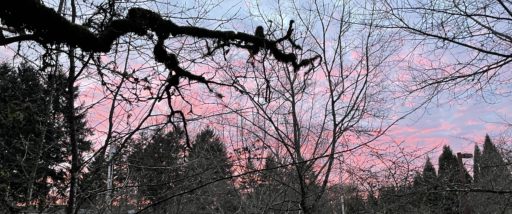
|
Words have been eluding me this month, mostly because news of war is always lurking, even in the early rays of morning light. I recently recovered from the bad habit of doom scrolling over Covid or presidential politics, and I was finally settling into the soothing early-morning habit of meditating and reading or writing poetry. Then along came Russian invasion of Ukraine, and tragic scenes from Kiev and Karkov (and other places I can’t even pronounce) flooded my mind.
I became acutely aware my own helplessness in the face of such enormous tragedy. Then I thought of our sister city Uzhrogod in the Ukraine. And so Geo and I went down to the courthouse and held a sign in solidarity. We donated money for supplies. Then we gave some more to support a local couple who were traveling to the warfront with medical supplies. This helped, but it didn’t feel like enough to match the hell of that war.
Then I thought of the painful losses within my own family from suicide and addiction, another hell in another time of life. And I remembered William Carlos Williams’ words: “It is difficult to get the news from poems, yet men die miserably every day for lack of what is found there.” The last few days I’ve managed to pick up a pen or remember a few words from trusted source Mary Oliver, determined to save the only life I can, my own. When I do that, the day dawns with a new dimension. If I’m lucky, I can be absorbed by a different world, the one that has been right beside me, all around me, all along.
To my amazement, Spring has come. Yesterday I sat in the sunshine on my deck in the woods on the meadow with a poet friend. The plum blossoms blushed pink and, and one of them floated like a tiny lotus in the bird bath, accompanied by the bubbling fountain over my shoulder. I knew right then what it is to be in heaven. Sometimes it feels as if there’s no place big enough to contain all the contradictions of life. Guilt came up, along with one image of starving people in Mariupol. Suddenly, the plum tree, along with the song of the yellow-rumped warblers, all of it was gone. This is how it is for me nowadays. My heart breaks from the hell of war. I try to do something to useful. But all the while there’s the heaven of spring, right outside my door.
Meditation helps. Walking and biking and yoga help. But what helps most of all is simply stopping, breathing, and looking around to take in the wonders of the world where I’m embedded right here and now.
Yesterday I saw a photo of a subway car in Karkhiv where many families shelter. A mother had placed a tin can with tulips in the window where she and her two sons were sheltering. (Check it out here.) May this be an image we all remember, a moment of spring poetry. A piece of heaven to honor the soul in us all.
|
 |
There is a quick moment
somewhere between dark and light.
Neither this or that.
Mystery sits there.
Nightmares become dreams and dreams nightmares.
Dome of sky offers a day uncut by sorrow
and morning is born again
with news of war waiting
unbidden in the shadows
—SgB 3/2022
How to Get Rich on Love
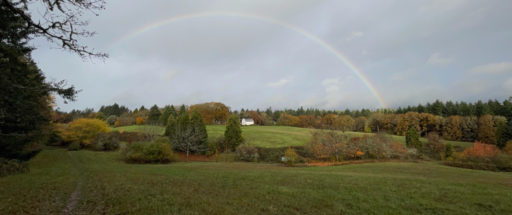
|
Morning meanders take me out my door and into the meadow outside for a loop to the top of a little hill. When I get there, I catch my breath and take in the expansive pastoral view of a green gully with a large barn across the way. This has been my habit most every morning for many years. In my mind it was my little secret before the pandemic made it a wider walking path. A couple of weeks ago, a classic park bench appeared at my usual breathing spot. A plaque on the back declared the more you love, the richer you are. No Parks Department insignia. No dedication to someone’s father, mother, sister. Just those eight words.
A mystery.
My imagination went on a walkabout. This wasn’t an amateur installation. Someone rich had been here, someone who had loved and been loved enough to memorialize it with an anonymous public installation. I live in a small city of overlapping relationships. So it wasn’t long before I began to hear speculation and nearly first-hand origin stories about the bench. The first, of course, was a secret romance of star-crossed lovers whose ashes were spread right there.
But my favorite (the one I made up, sort of) was about two people who fell in love and decided that they wouldn’t keep it to themselves. In my story, their expanded hearts multiplied and multiplied, spreading their love to this generation and the next through their generosity. And when one of them died, they died wealthy by every measure. In my heart I knew these people. I loved them both.
An old storyteller once told me: if it weren’t true it shoulda been, And so I’m choosing my version. This is a Love Bench, available to all, a place for love to grow. And now it’s a new addition to my morning walks. A place to steep in the power of the heart, every day of the year. A sure way to get rich.
May you feel the wealth grow around you and let it grow your heart. Every day of the year.
|
 |
|
PS. Special thanks to my Valentine of more than 50 years, Geo, aka George Beekman, for photos and help putting this together. I’ll sit on that bench with you any day.
|
Invitation to a Wandering Queen
This is just to say the welcome mat is out.
The table is set.
And also this:
I never forgot you.
There’s a soft seat here, tucked inside
this rib cage
as small and as big as the known universe
offering everything and nothing
but a throne fit for a sovereign
queen of hearts, a place to sit and be
or maybe not be
anything at all,
protected by
a foggy moat.
Ready embers still await you.
Won’t you come to stay?
—SgB 1/2022
